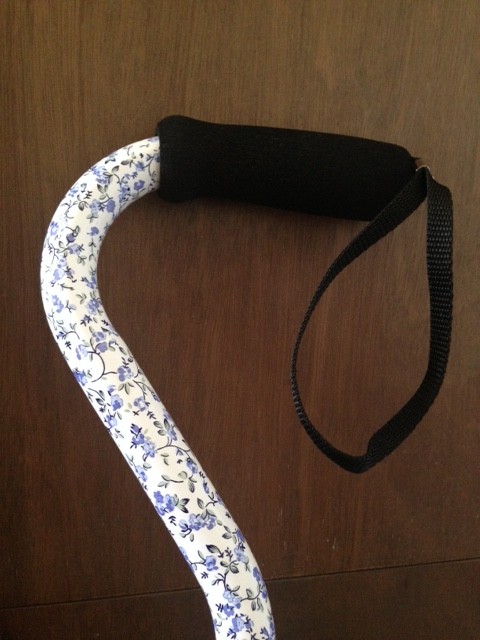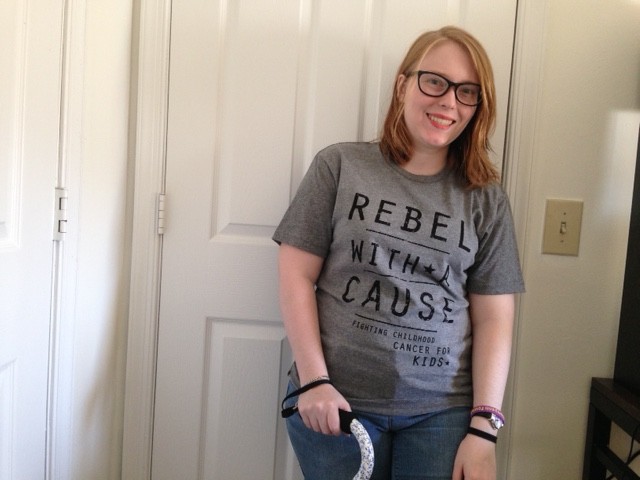When a Stranger Implied Using My Cane Was a Choice
“I’m disabled. I would use a cane, but I refuse to,” said the employee at our grocery store.
I stared back at the woman for a few moments, glancing at my own cane, then at her. My mom stood beside me. We were only trying to check out at the grocery store when an employee asked what was wrong with my foot. Of course, there was nothing wrong with my foot; the cane I use is to combat vertigo and a general lack of balance and lightheadedness as a result of my chronic illness.
After a few seconds of stunned silence, I managed to respond. “Well, maybe you should try getting one. It really helps,” I said.
Thinking back, there are so many things I wish I’d told the woman. I know she meant well. Perhaps she was trying to empathize. The fact of the matter, though, is that it’s not as simple as “refusing” to use a mobility device.
I started using my cane last year, but I’ve only started using it full-time recently. In the past few weeks, I’ve had many people stare, and a handful of people directly ask why I had the cane to begin with. While I’m generally more than happy to educate and inform others about my disability, there are times I just want to be left alone. On days when my pain is bad or I’m pushing myself already just to get out of the house, reciting the facts about my chronic illness is difficult.
When I first started using it, I was a little uncomfortable. I didn’t feel “sick enough.” The more I used it, though, the easier I found going out to be. I was able to go to stores with lights that bothered my head without feeling as unsteady. I now use my cane daily, and I am grateful for it. It would be stubborn and foolish or me to “refuse” to use something that helps me so much. I worry comments like the one I received from the woman could further the stigma that a disability makes a person weak.
Strangers are not obligated to know anything about my health. I am happy to explain most of the time, but getting called out in public for being disabled is startling and uncomfortable. I make it my policy to always explain I have a chronic illness to new friends, doctors, professors and other people who may be affected. If a person has questions after I tell him or her that I have a chronic illness, of course I’ll answer any questions. As for strangers, though, I’d ask to I be treated like anyone else. After all, sometimes I’m just going to the grocery store for milk.
To the woman in the grocery store, I would say this: I use a cane because I need to, not because I want to use one. I know she meant no harm, and I appreciate her intent. However, I would advocate for everyone to do what is best for their health. If you are hurting, do not “refuse” something (a mobility device, medication, etc.) that will help you out of pride. For me, using a cane is not a choice — and that’s OK. There is no shame in helping yourself.
The Mighty is asking the following: Write a letter to anyone you wish had a better understanding of your experience with disability and/or disease. If you’d like to participate, please send a blog post to community@themighty.com. Please include a photo for the piece, a photo of yourself and 1-2 sentence bio. Check out our Share Your Story page for more about our submission guidelines.


